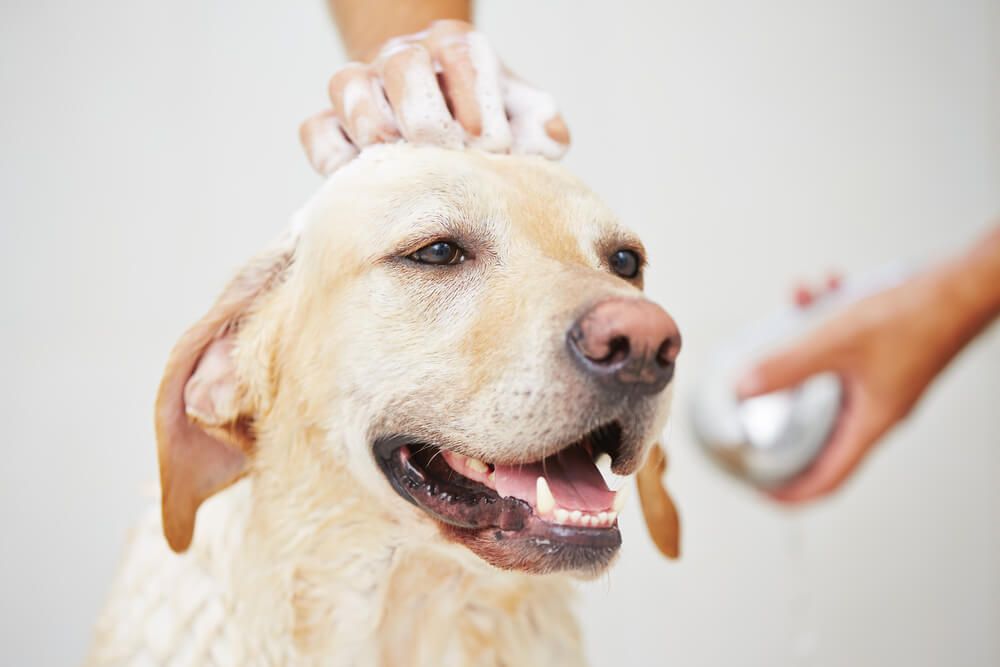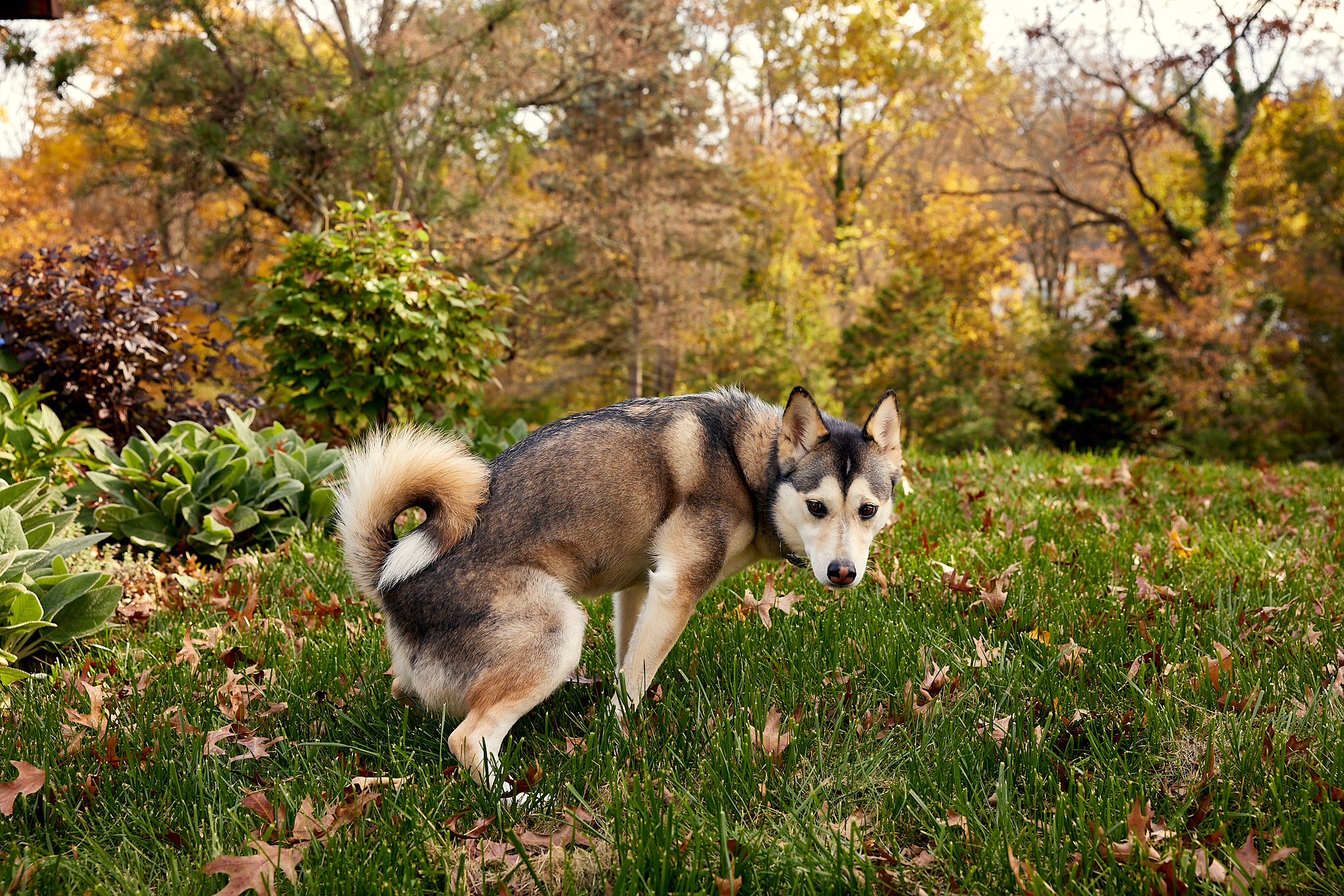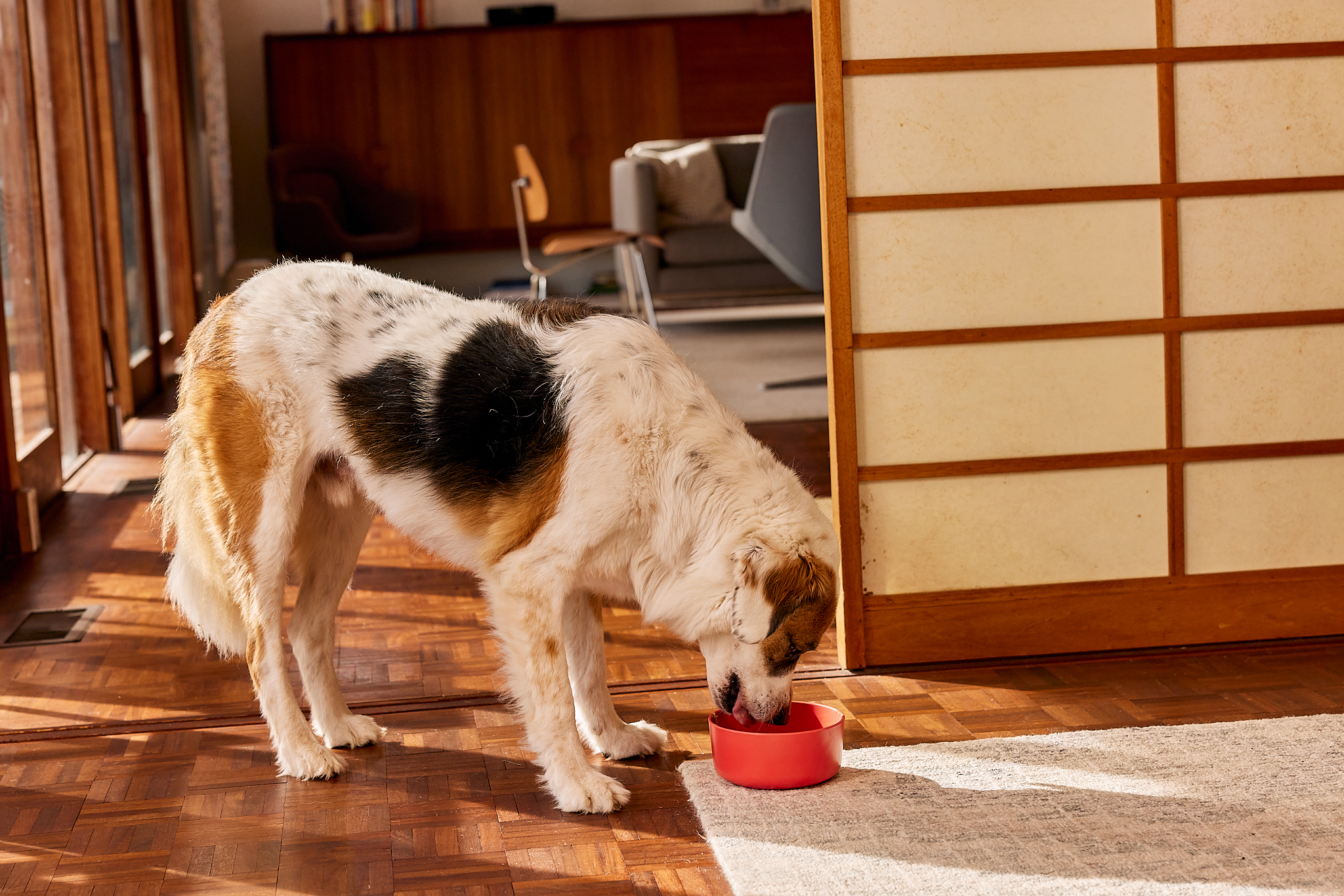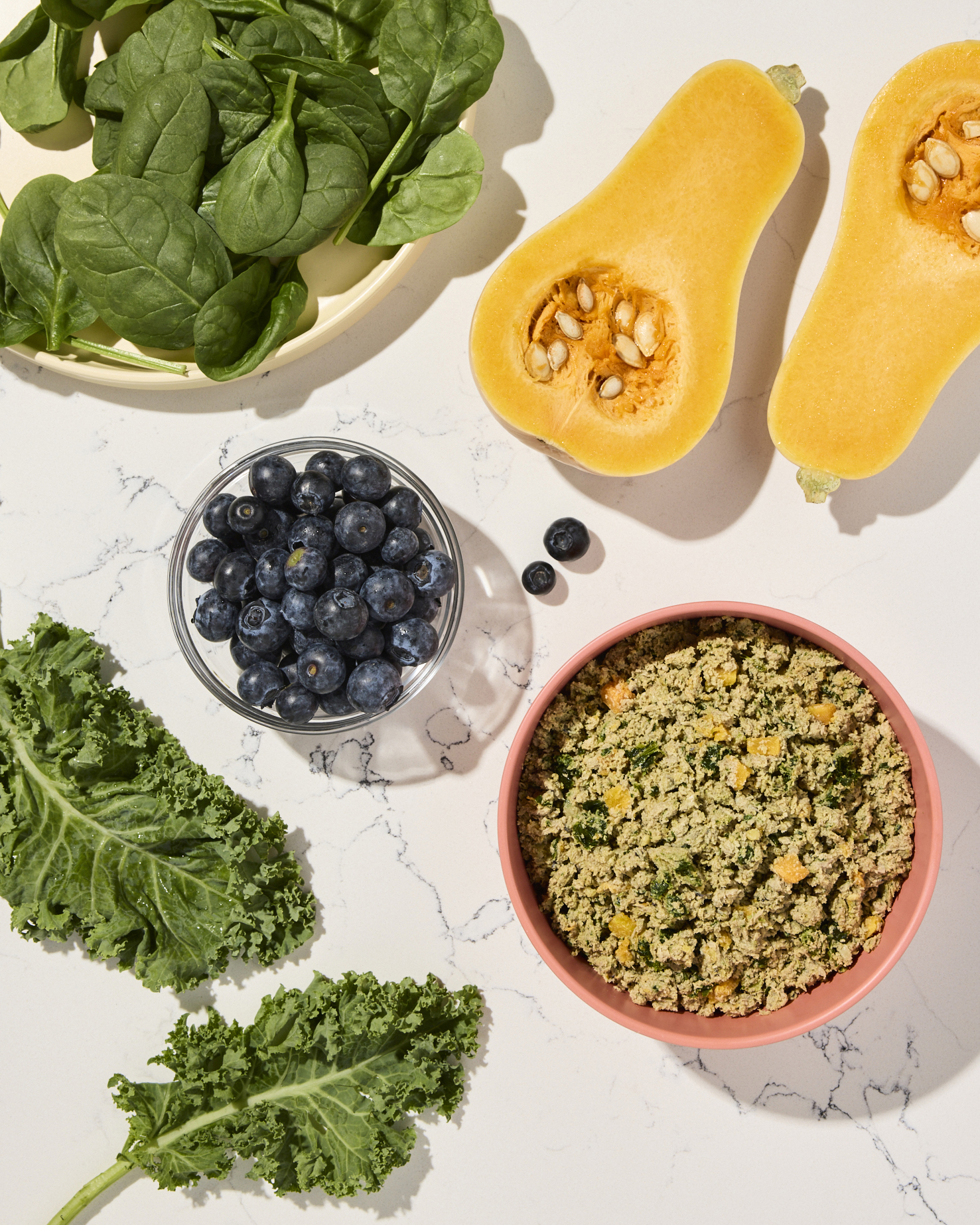Hey Ollie blog readers! We’re offering you an exclusive 60% OFF your starter box! Try now!
Time flies when we’re living life with our best friends; before we know it, we’re overdue for a check-up, a grooming, or teeth cleaning for our pups. We broke down some useful (and necessary!) maintenance milestones to keep your pup’s health and wellness in check as you move through the days, months, and years together.
Daily Pup Maintenance Tasks
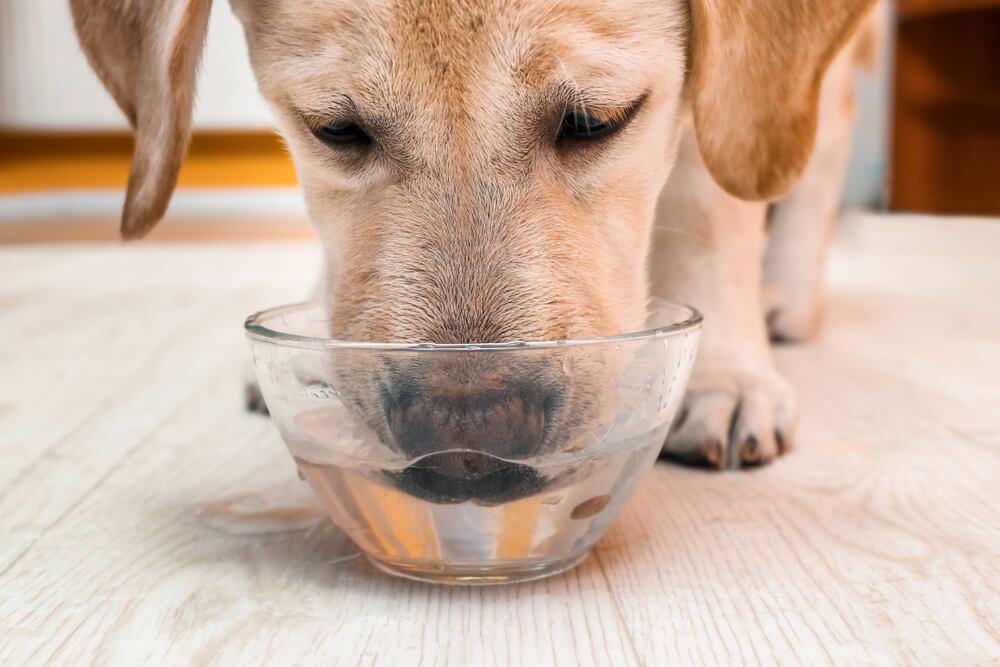
Give your dog food and water
While your dog should be on a feeding schedule according to their age, weight, and breed, they should have access to cool fresh water at all times. Make sure your pup is well-fed and hydrated each day to keep them at their healthiest.
Wash dog bowls
Just like you clean your dishes, you should also clean your pup’s bowls. According to a study conducted by the NSF, your dog’s bowls are the fourth germiest spot in your home. Daily cleaning with hot water and soap will keep them sparkling and germ-free.
Brush your dog’s fur
If your pup has long hair, it can easily get matted between trips to the groomer. That is why it is important for you to brush your dog’s hair or fur daily (or at least every few days) to avoid painful matting. Your groomer will not be able to brush through thick mats either, and they will need to be shaved off. Brushing hair can also be relaxing if your pup enjoys the experience (which is more likely if they aren’t covered in tangles or mats).
Brush your dog’s teeth
Since a professional cleaning will need to be done under anesthesia, your best bet is to keep your pup’s teeth as clean as possible to avoid the need for frequent sedation and painful procedures. Brush your pup’s teeth with a toothbrush and toothpaste designed for dogs. Human toothpaste contains artificial sweeteners and other ingredients that can make your pup sick.
Check for fleas and ticks
No one wants fleas and ticks in their home, so it is a good idea to check your dog’s skin regularly for signs of fleas and ticks. These little pests can hitch a ride on your pup (or you) into your home. Fleas spread quickly, and ticks can cause Lyme disease in both you and your pet. If you live in an area with a large tick population, it also might be a good idea to chat with your vet about the Lyme vaccine. As far as the fleas go, these checks are hopefully just for an immediate issue as you’ll want to have your pup on some kind of preventative, which we will discuss later.
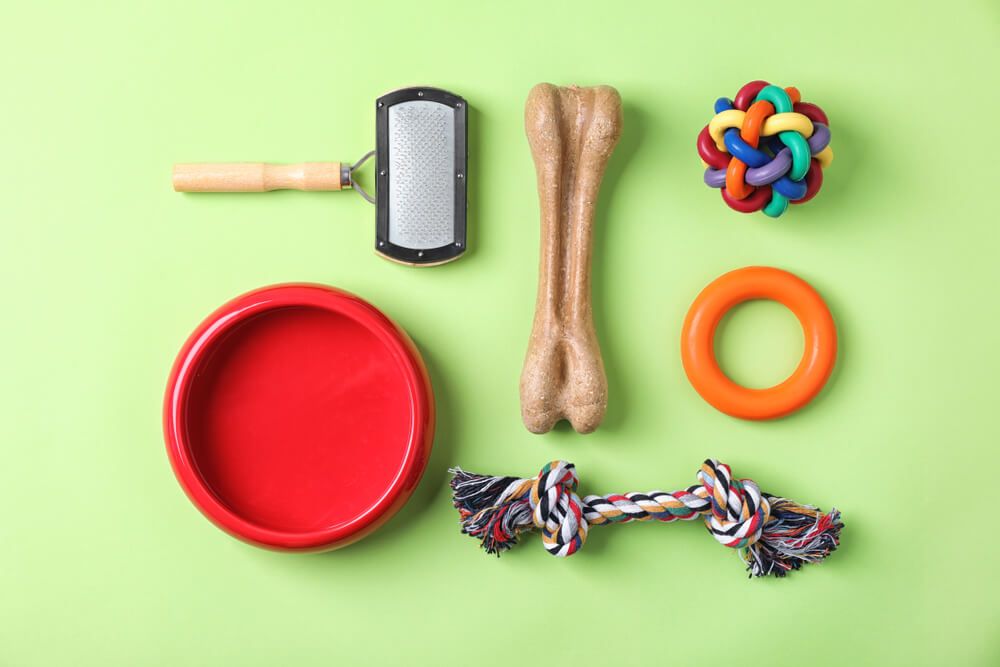
Weekly Dog Maintenance Tasks
Wash bedding
If your pup has their own bed or blanket in their crate, it should be washed weekly, not unlike your bed sheets. To make this task easier, consider buying a bed with a removable cover. For harder-to-clean beds, try vacuuming often and use a portable upholstery cleaner like the Bissell Little Green machine.
Clean toys
Your pup’s toys can also become germ-infested, so cleaning these frequently is a good idea. Toys like the Kong can go in the dishwasher, but you’ll want to use the washing machine or hand wash other toys as recommended by the manufacturer.
Monthly Dog Maintenance Tasks
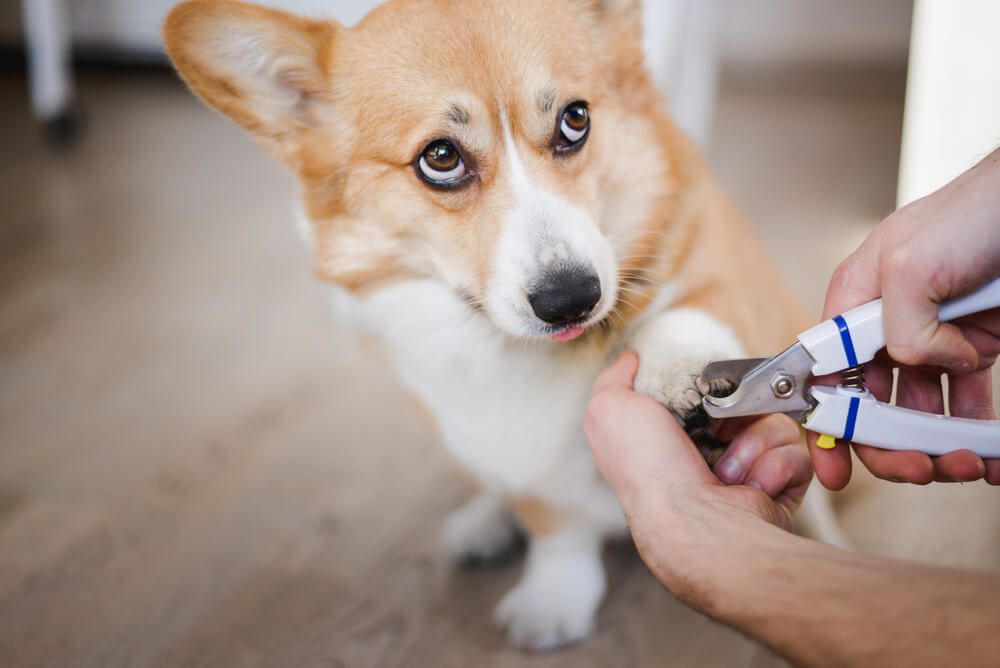
Check toenails to see if they need trimming
Having toenails that are too long can make it hard or uncomfortable for your dog to walk correctly, which can lead to other orthopedic issues if left for too long. Check their nails at least once a month and trim them (or ask your groomer or vet tech for help). Remember to also pay attention to the dewclaws, those nails are higher up and don’t touch the ground when your pup walks. Even if your pup’s nails stay shorter from walking on the sidewalk, the dewclaws will continue to grow and need to be maintained.
Check ears to see if they need cleaning
Ear infections are no fun for anyone. Once a month (especially after a bath) check to ensure that your pup’s ears are clean, dry, and infection free. You can ask your vet about an ear-cleaning solution that you soak into a cotton ball.
Give Your Pup a Bath
Depending on your pup’s breed and skin condition, they may need baths more or less frequently. This is a great task to DIY, but if your pup needs a haircut or is especially jumpy, you might want to enlist the help of a professional. If your pup has skin allergies or dry skin, you’ll need to be especially picky about the products you use to bathe your dog. Ask your vet or a skilled groomer for recommendations!
Schedule a Haircut?
A monthly haircut might be overkill but once a month, check your pup to see if they need one. Even if they don’t need a full cut, you may want to remove any mats from their coat and trim beards, paws and have a sanitary shave. Some pro grooming shops offer a package called face, feet, and fanny (or something similar) to address just these issues.
Anal Gland Expression
Probably not one you want to DIY. Dogs generally express their own anal glands when they poop. However, some dogs need a little assistance as things back there can build up or get clogged. One sign of a clogged anal gland is your pup scooting on the floor or carpet. They do this because it can be uncomfortable or itchy. If your pup is scooting, get them to the groomer or vet to have the glands expressed. If you don’t, you risk infection or an anal tear, both of which can be really painful for your pup and take longer to treat and heal.
Flea, Tick, and Preventatives
Your pup should be on some kind of preventative treatment for fleas and ticks as well as heartworm. The most common preventatives include monthly medications or collars that are changed out once a month. Some medications like Bravecto are given every three months, so if your pup is on a slightly different regimen, ignore this monthly task and follow the directions for your pup’s protocol.
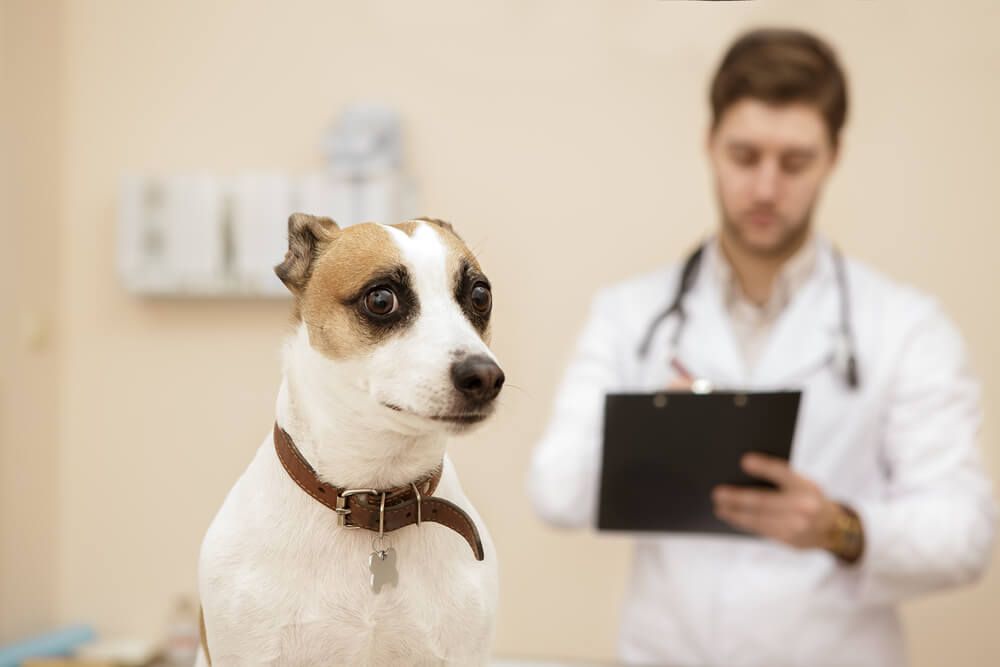
Bi-annual Dog Maintenance Tasks
Shedding
While some pups will shed year-round, you might notice your dog sheds a lot about twice a year. Once in the spring to lose their extra winter fluff and once in the fall to prepare for their winter coats to grow in. During these periods of shedding, you might want to brush their fur more frequently and invest in a lint roller!
Vet visit (senior dogs over 7)
If you have a senior pup, defined here as a dog over 7 years old, you’ll want them to see the vet for wellness checks twice a year instead of just once. Even if everything is fine, these visits are a good way for your vet to keep an eye on any lumps, bumps, or growths, as well as the health of your pup’s eyes and teeth. You can also use these visits to discuss any pain management needs, as joint pain and arthritis can develop as your pup gets older.
Check leashes, collars, and harnesses
Every 6 months (more frequently for puppies), you want to check your pup’s gear to ensure it is still fitting properly and not showing signs of wear or tear. There is nothing scarier than a dog running off because their leash broke or they slipped out of their harness or collar. You also want to make sure the contact info on their tag (and microchip) are up to date, and their ID is can be clearly read.

Annual Dog Maintenance Tasks
Physical exam and booster shots
For pups over one year and under 7, you will want to continue to see your vet annually for a wellness exam and vaccines. The number and frequency of vaccines will depend on your location and pup’s lifestyle. In most of the US, the only legally required vaccine is the rabies shot. This is given either annually or every three years, depending on the vaccine. The other core vaccines most pups get are canine parvovirus, distemper, and canine hepatitis. If you board your pup or take them to doggie daycare, the facility may also require you to get your pup vaccinated for bordetella (kennel cough) either every 6 months or annually. The other vaccines many dog owners opt into are leptospirosis and Lyme disease. Discuss your vaccine schedule with your vet and decide together what is most appropriate for your pup.
Fecal test
At your pup’s annual exam, the doctor’s office might ask you to bring a sample of your pup’s poop. This is so it can be tested for parasites. Generally, the office will call or email you with the results a few days after your appointment.
Heartworm test
During your appointment, your pup will have a small amount of blood drawn. This is to ensure they do not have heartworms. If your pup tests positive, it will need treatment before resuming a preventative regimen.
Bloodwork
Your vet may ask about performing a routine bloodwork panel to check things like liver and kidney function etc. Many pet owners opt for this as their pets enter their senior years, but it is something you can have your vet do at any age.
The Ollie blog is devoted to helping pet parents lead healthier lives with their pups. If you want to learn more about our fresh, human-grade food, check out MyOllie.com.
Tagged As:

The nutrition your dog needs,
the food they want.

Enjoying our articles? Subscribe our Newsletters and get new articles directly to your inbox
You might also like
3 July 2025
5 MINS READ
How Fresh Food Can Help Your Dog Have Perfect Poops
As a pup parent, you’re likely very familiar with your dog’s bathroom habits. While it may not be the most glamorous part of taking care of your pup, a dog’s stool can be one of the most dir…
by Ollie Pets
4 June 2025
5 MINS READ
How Can Fresh Dog Food Help with Weight Management?
Maintaining a healthy weight is one of the most important aspects of your dog’s overall health and longevity. Being overweight or underweight can result in health complications and conditions that…
23 May 2025
5 MINS READ
Why Fresh Dog Food Makes Happier, Healthier Dogs That Live Longer
Every pup parent wants their dog to live a long, happy life, and the path to a healthier, happier dog starts with what’s in their bowl. Recent research and expert insights reveal that fresh dog …
by Ollie Pets
